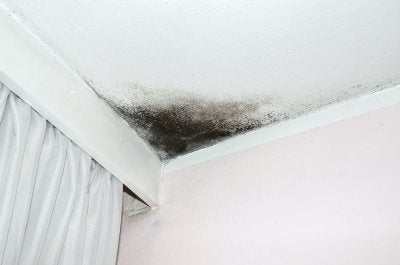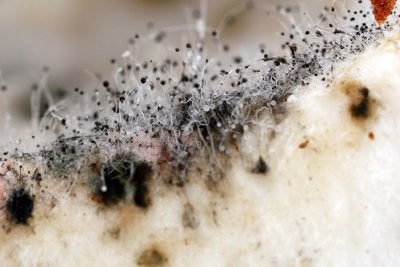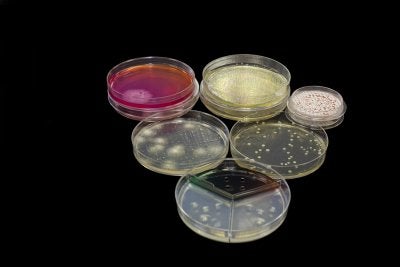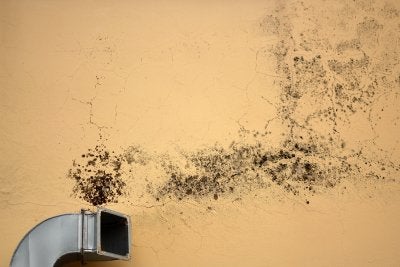-
Mold and Your Health
Most common molds do not pose a health concern to people who are generally healthy. But for those who have existing health concerns, mold exposure can bring on a host of health issues. To learn more about mold and your health, and the importance of routine mold testing in San Francisco , read on.
Mold Symptoms
People who have allergies or asthma may experience a number of mold symptoms , including skin rash, runny nose, eye irritation, itching, cough, asthma aggravation, and congestion. Those with an immune suppression or lung disease may be at a greater risk for infections from mold exposure. Other serious health resulting from mold exposure include fatigue, coughing up blood, nose bleeds, dizziness, diarrhea, vomiting, liver damage, headaches, fever, and flu-like symptoms.
fever, and flu-like symptoms. Microbial Volatile Organic Compounds
Also known as mVOCs, Microbial Volatile Organic Compounds can cause a number of health problems caused by exposure to mold. Produced by fungal metabolism, mVOCs are released into the air and give off a strong, unpleasant odor. Exposure to mVOCs that exist in mold can irritate the respiratory system and eyes. It is common for mVOCs to cause headaches, nasal irritation, nausea, fatigue, and dizziness.Seeing a Doctor Regarding Mold
If you believe you are exposed to mold in your home or business, visit a family or general health care provider. He or she can refer you to an allergist who treats mold allergies or an infectious disease physician who treats mold infections. The doctor will be able to administer a test to see if you have been exposed to mold. He or she can also determine if you are allergic to mold by using a skin or blood test.What to Do if You Suspect Mold in Your Home or Business
If you believe mold is inside your home or workplace, schedule a mold inspection with Safe Air Fast to ensure the mold is removed. At Safe Air Fast, we perform mold investigations and mold cleaning services. -
Understanding the Mold Inspection Process
If you are experiencing headache, fever, congestion, or fatigue, there is a chance that your body is reacting to mold exposure. Fortunately, these symptoms will go away if you find the source of the mold and eliminate it. The first step to treating mold is to schedule a mold inspection near San Francisco . In this article, we will review the mold inspection process and why it is so important.
Detecting Mold
The first step in the mold inspection process is realizing that you need a mold test. Most people realize they need a mold test when they smell mold—it has a distinctive odor that’s musty and damp. Other people recognize the need for a mold inspection when they experience mold symptoms like the ones listed above, or when they see mold on the walls, in corners of the room, or on objects.
Locating Mold
When the mold testing specialists arrive in your home, they will look in some of the popular hiding places for mold. It is common for mold to grow under carpets or carpet pads, behind draperies and wallpaper, under wood, behind drywall and wallboard, on pipes, above ceiling tiles, and in ductwork.Cleaning Mold
Getting rid of mold entails both removing it and eliminating the conditions that caused it to grow. Determining what type of mold you have is not as important. Moldy areas must be treated with biocide; otherwise, mold can continue to make you sick even after it dies. To keep mold from growing back, dry wet spots within 48 hours, and keep your indoor humidity between 30 and 50 percent.Post-Clean Test
Mold testing is a good way to make sure your home or business is mold-free after a mold cleaning. At-home mold-testing kits do not provide the level of detailed testing that comes with a professional mold assessment. A professional mold test is especially important if your home has suffered from water damage, as it is very difficult to fully test for mold with an at-home kit. -
Spotlight on Mold Remediation
After a mold inspection uncovers mold on your property, you will need to act fast to prevent wood rot and other structural issues. In addition, a mold problem could lead to symptoms of black mold poisoning, including respiratory issues and allergy symptoms. To eliminate a mold problem, you can start by removing all moisture from your home. Your remediation specialist may also apply a fungicidal spray to the affected areas of your property. Once your mold removal procedure has been completed, you can check to see if it has been successful by scheduling a mold inspection. A post-remediation mold inspection will give you the peace of mind that comes from knowing that your mold issue has been fully eliminated. A company offering mold testing near San Francisco can provide you with a full range of inspection services. To learn more about mold remediation, check out this video from ABC Action News.
-
Is Your Mold Remediation Covered By Insurance?
When a mold inspection turns up a problem in your home, it is time to act fast and schedule mold remediation services. Your mold testing company will be able to pinpoint the precise location and extent of your mold damage. After your mold inspection near San Francisco, you may want to contact your insurance company to see whether your remediation will be covered by your insurance plan. With proper recovery, you can prevent your family from being affected by black mold symptoms. Here is a look at how to determine whether your mold remediation is covered by insurance.
Determine the Source of the Mold Problem
The first step of making a mold claim on your homeowner’s insurance is to uncover the precise source and
cause of your mold issue. Since mold requires moisture in order to grow, there is a good chance that your mold problem has been caused by a flooding leak, environmental problem, or other unforeseen issue. Depending on the type of insurance that you have for your home, the source of your mold problem may determine the amount of coverage you receive.
Investigate Your Insurance Policy
Once you have determined the source of your mold problem, your next step will be to investigate the terms of your homeowners insurance policy. Each insurance plan provides different forms of coverage, depending on the reason that your mold problem occurred in the first place. For example, if your mold problem was caused by neglectful maintenance, you may not have coverage.Consider Adding Mold Coverage
To ensure that you are covered for any future mold damage to your home, you may want to consider taking out additional mold coverage for your home. When you add mold coverage to your insurance policy, you will be covered for any scenario that could cause a mold infestation in your home. With this type of insurance, you can rest assured that you will be able to start on your mold remediation as soon as your inspection is completed. -
Frequently Asked Questions About Mold
If a recent mold inspection has shown that your home is infested with black mold, it is vital to the health and safety of yourself and your family to schedule mold removal right away. Mold testing involves a thorough diagnosis of every area of your home that may be susceptible to mold problems. After your black mold testing, you will be able to take the steps needed to rid your home of this troublesome issue. A company offering mold inspection near San Francisco will be able to assess the level of mold damage that is affecting your home. To help you get started on your mold evaluation, here is a look at some frequently asked questions about mold.
Where Does Mold Come From?

When a mold problem shows up in your home, you may wonder where this issue has come from. Mold is a term that is used to describe a form of fungus. Mold spores are ever-present in the air around us. When mold spores find the conditions that they need to grow, they will quickly start a mold colony.What Conditions Encourage Mold?
There are several conditions that may encourage the growth and spread of mold in your house. In order to grow and spread, mold requires constant moisture. For this reason, a hidden plumbing leak or other form of water damage could result in a mold problem. Along with moisture, mold also needs low lighting, still air, and continually moderate temperatures.Why Is Mold a Dangerous Problem?
While mold may seem like it is solely a cosmetic nuisance, black mold actually poses a serious health risk to any person who spends time in your home. In fact, continued exposure to black mold has been linked to the symptoms of black mold poisoning. Some of the signs of black mold poisoning include respiratory issues, allergies, and skin rashes. If a member of your family develops these symptoms, you should be sure to schedule a mold inspection for your house. -
Why Mold Matters [INFOGRAPHIC]
If you have mold in your house, it’s important to act quickly to address it to avoid serious health risks. The symptoms of mold exposure include asthma, skin irritation, and eye irritation, and mold exposure can be serious for children and the elderly as well as for pregnant women. If you suspect you have mold in your home but aren’t sure, arrange a professional mold inspection. A mold test will identify any mold in your home so you can arrange for the proper removal. Find out more about the importance of acting fast when you have mold in this infographic from Safe Air Fast . Contact us for mold inspection near San Francisco if you think you have an issue. We provide mold inspections, lead testing, bacteria testing, and more. The issue of household mold is a serious one, so please share this information to help other homeowners understand the risk.

-
How Black Mold Can Affect Your Pregnancy
If you have received the exciting news that you have a baby on the way, you may want to consider scheduling a mold inspection for your home. Among the common black mold symptoms are health issues that can affect both you and your unborn child. With a mold inspection near San Francisco, you will have the peace of mind that comes from knowing that your house provides a safe and healthy environment for you during your pregnancy. To highlight the importance of mold testing, here is a look at how black mold can affect your pregnancy.
Allergy Symptoms
Black mold in the home can cause a variety of serious allergy symptoms. For example, black mold exposure has been linked to coughing, sneezing, and chronic sinusitis. In addition, black mold can also lead to respiratory infections. These allergy symptoms can be a serious concern if you are pregnant with a child. By scheduling a black mold removal at the first sign of your pregnancy, you can ensure that black mold does not lead to allergy problems.
pregnant with a child. By scheduling a black mold removal at the first sign of your pregnancy, you can ensure that black mold does not lead to allergy problems. Asthma
Along with creating allergy symptoms, black mold exposure can also worsen the symptoms of asthma sufferers. When black mold spores are lingering in your indoor air, your respiratory system can become irritated. This can lead to an increase in asthma symptoms and asthma attacks. Since it is highly important to remain in optimal health when you are pregnant, black mold inspection and removal is a great idea during this sensitive time.Toxins
Black mold is a toxic substance that can be lingering behind your walls and in other areas throughout your home. When you are pregnant, it is important to keep your unborn child as protected as possible from environmental toxins. If your home shows the signs of a black mold problem, you can eliminate the issue with the help of a company offering black mold inspection and removal in your local area. -
Signs That You Need a Mold Inspection
Mold in your house can negatively affect the health and well-being of yourself and your loved ones. By scheduling a mold inspection at the first sign of a mold problem, you can be sure that you and your family are protected from the dangers of mold poisoning. During your mold inspection, a technician will thoroughly examine your property for traces of mold. If mold is found during your mold testing near San Francisco, you will be ready to set up mold remediation services for your home. Here is a look at some of the top signs that your home may need a mold inspection.
Visual Traces of Mold
Perhaps one of the most apparent signs that your home needs a mold inspection is visible traces of mold throughout your home. When black mold is growing in your home, you will see small black or
brownish dots along your floors, ceilings, and walls. You may also notice mold growing in areas where moisture accumulates, such as around bathroom fixtures or vents.
Excessive Moisture
Excess moisture in your home is another sign that you are in need of a mold inspection. Since mold requires moisture in order to grow and thrive, water or humidity in your indoor spaces could point to a mold problem in your home. When your house has a moisture or mold problem, you may also notice a stale or musty odor when you enter certain rooms. When you notice moisture, it is time to schedule a mold inspection.Health Issues
When your home is in need of a mold inspection, you or a family member may also develop certain health issues. For example, household mold has been shown to cause allergic reactions, such as coughing, watery eyes, and sneezing. Black mold can also worsen allergy symptoms. If you or a loved one is experiencing the symptoms of indoor allergies, it is time to schedule a mold inspection for your home. -
Examining the Link Between Mold and Asthma
Asthma is a serious health problem that affects millions of Americans. Since mold is a proven asthma trigger, it is highly important for asthma sufferers to live and work in mold-free environments. When mold is present in an indoor space, its microscopic spores will contaminate the air. A person with asthma may develop mold symptoms when he or she enters a contaminated building. If you are concerned about mold in your home, you should consider scheduling a mold inspection near San Francisco . A company offering mold testing can help ensure that your home or business is safe for those with asthma. To take a closer look at the benefits of scheduling a mold inspection today, be sure to check out this video from Paul Cochrane.
-
Tips for Controlling Mold in Your Home
While black mold is an unsightly presence in any home, this bothersome substance can also pose a serious health hazard to you and your family. If you are concerned about household mold, you may want to set up a mold inspection with a certified company . A business offering mold inspection near San Francisco can help you determine whether mold is an issue on your property. After your mold testing, it is important to take steps to prevent mold from coming back in your home. To help you plan for your mold test, here is a look at some tips for controlling mold in your home.
Ensure Proper Ventilation
Mold requires damp conditions in order to grow and thrive. One of the most effective methods of mold control in the home is to make sure that all of your indoor spaces are properly ventilated. If
certain areas of your home are particularly damp, you may want to consider setting up a ventilation system, such as a fan or a dehumidifier.
Repair Foundation Problems
Many mold problems are the result of cracks in a home’s foundation. When you are planning a mold control project for your house, you may want to consider repairing any foundation cracks. By repairing your foundation, you can ensure that your home has a watertight seal. Keeping water from entering your home will go a long ways toward preventing the growth of mold. When you repair your foundation, you may also want to consider resealing your windows and doors.Organize Storage Spaces
Mold has a tendency to grow in out of the way areas, such as closets and storage areas. To prevent mold in your home, it is a good idea to keep your storage spaces organized and clean. In addition, it is a good idea to avoid stacking furniture and belongings. To absorb moisture in your closets, you can also place a box of baking soda in a corner of the space.
RECENT POSTS
categories
- Uncategorized
- Lead
- Mold
- San Francisco Mold & Asbestos Removal
- Indoor Air Pollution
- Mold Remediation
- Asbestos
- Safe Air Fast
- Mold Inspection
- Remediation
- Bacteria Testing
- Asbestos Testing
- Abatement
- Lead Testing
- Sewer Line
- Lead Survey
- Mold Testing
- Air Quality Inspection
- Home renovations
- Allergies
- Renovation Contractor
- Infographic
- lead paint
- Air Quality
- Air Quality Test
- Mold removal
